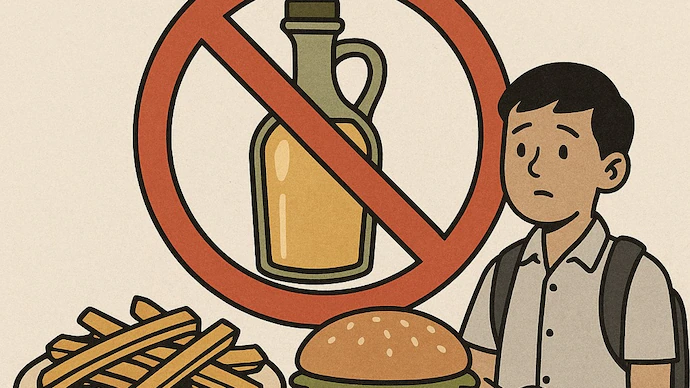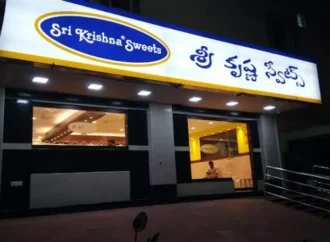Report
Building on its successful ‘Sugar Boards’ initiative, the Central Board of Secondary Education (CBSE) has taken a new step toward promoting healthy habits in schools. In a recently issued circular, CBSE has directed affiliated schools to roll out ‘Oil Boards’—a visual awareness campaign aimed at reducing the intake of unhealthy fats and oils among students and staff.
Why the Initiative Matters
CBSE’s latest move comes in response to rising concerns about childhood obesity and poor dietary habits, particularly in urban India. Citing data from the National Family Health Survey (NFHS-5, 2019–21), the Board points out that over 20% of urban adults in India are now overweight or obese. A 2025 Lancet study adds to the concern, predicting that the number of overweight adults in India could surge from 18 crore in 2021 to nearly 45 crore by 2050, making India the second-most obese country in the world.
What Are ‘Oil Boards’?
According to the CBSE directive, ‘Oil Boards’ are educational tools—printed posters or digital screens—to be placed in high-traffic areas of school campuses such as cafeterias, hallways, and staff rooms. These boards will display facts, warnings, and simple messages highlighting the health risks associated with high consumption of fried and fatty foods. The goal is to help the school community make more informed, mindful food choices.
What Schools Are Expected To Do
CBSE has outlined a comprehensive, multi-layered approach for schools to implement the campaign effectively:
- Install Visual Displays: Place attention-grabbing posters or digital messages in key school locations to constantly reinforce healthy eating messages.
- Update School Stationery: Add short health messages or nutrition facts to notebooks, folders, and letterheads to extend the campaign’s reach.
- Promote Healthier Environments: Encourage school canteens to serve nutritious alternatives and limit the availability of fried snacks and sugary drinks. Promote regular physical activity through movement breaks, stair use, and walk-friendly zones.
- Engage Students Directly: Involve students in the creation of Oil Board content as part of classroom projects. This could include research, design, and writing of health messages to deepen their understanding of nutrition.
To support schools, CBSE has recommended using educational materials provided by the Food Safety and Standards Authority of India (FSSAI). Schools can access videos, posters, and guidelines via FSSAI’s social media platforms and YouTube channel.
A Holistic Approach to Health in Schools
The ‘Oil Board’ initiative continues CBSE’s broader mission to embed preventive health education into the daily school experience. By actively involving students, staff, and the wider school community, the campaign aims to instil lifelong healthy habits and build an environment that supports better nutrition choices. Like the earlier Sugar Board campaign, this effort is not just about displaying information—it’s about creating a culture of health and awareness across school campuses.
Source: India Today
 Food Manifest
Food Manifest 


















